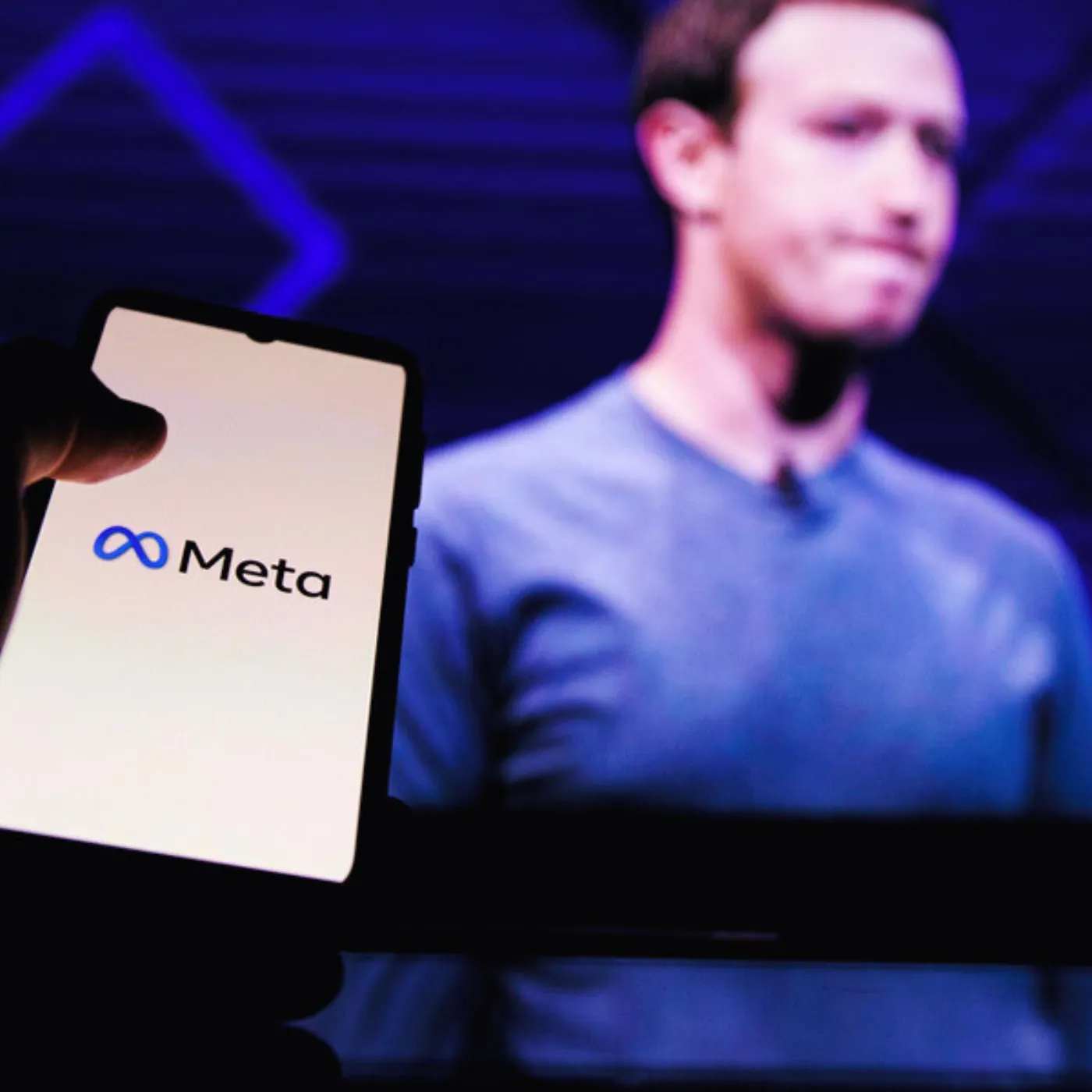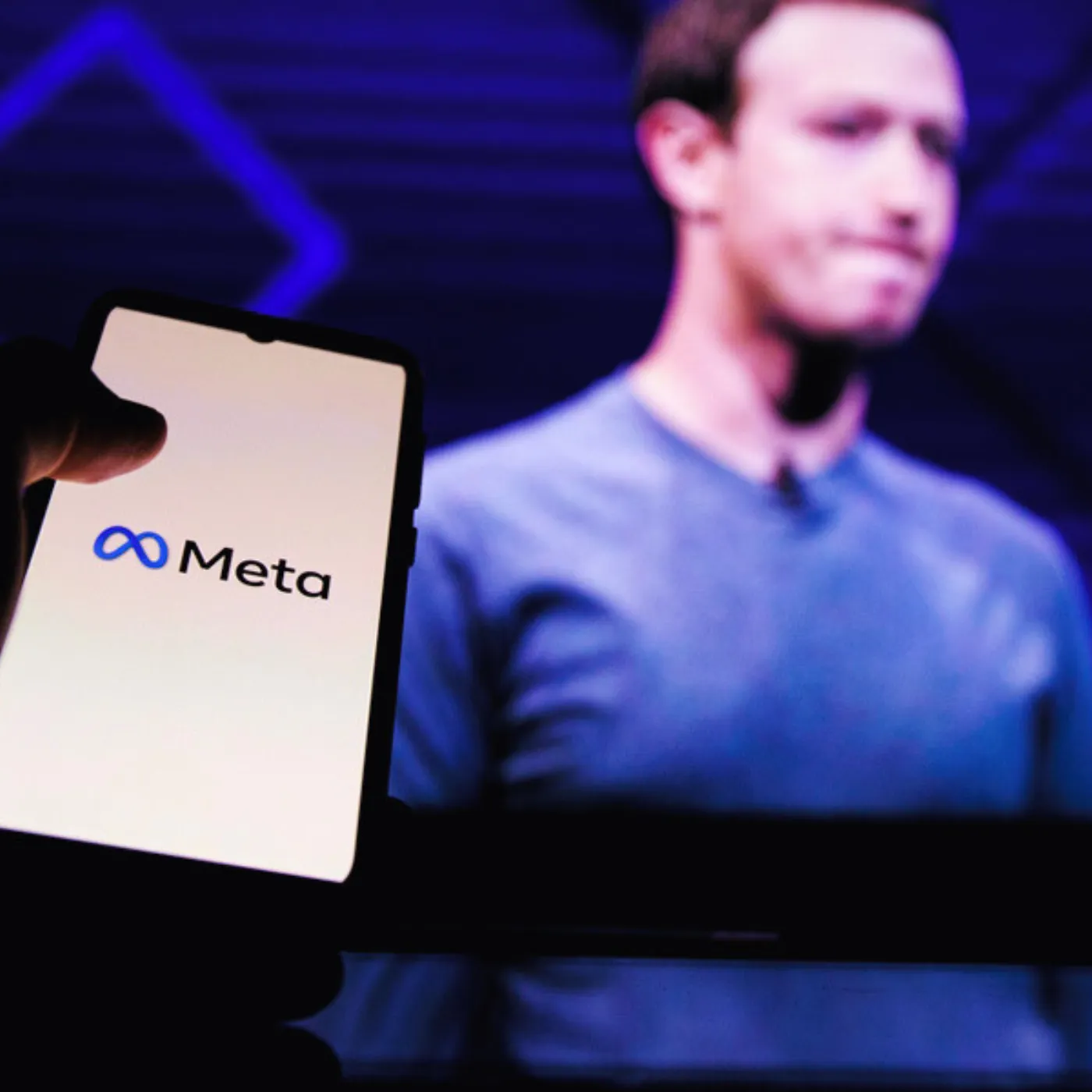

Mark Zuckerberg’s AI Friends Are Here to End Your Loneliness
In a world where technology is rapidly transforming nearly every aspect of our daily lives, one thing remains constant: the need for human connection. Loneliness has become an increasingly common challenge, especially in today’s fast-paced, hyper-connected society. While we can connect with others online, the depth and authenticity of those connections often leave much to be desired. In response to this growing concern, Mark Zuckerberg and Meta (formerly Facebook) are stepping up to provide a solution that could change the way we experience companionship. Enter AI friends—an innovation poised to reshape the landscape of social interaction.

Meta’s push into AI-powered friendships is a bold step in a new direction, and it raises a series of intriguing questions about the nature of connection, technology’s role in our lives, and what it means to be truly “friends” with an artificial intelligence. But is this the answer to the loneliness epidemic, or are we simply trading one form of isolation for another? Let’s dive deeper into this new frontier of social interaction and explore the impact that AI friends may have on our lives.
The Loneliness Epidemic
The loneliness crisis has been steadily growing, especially over the past few years. According to a 2021 survey conducted by Cigna, nearly half of Americans reported feeling lonely, with younger generations experiencing the highest rates. The pandemic only exacerbated this issue, as lockdowns, quarantines, and social distancing measures further limited in-person interactions. As many people turned to social media and digital communication to bridge the gap, many still found themselves feeling disconnected, leading to the rise of terms like “digital loneliness.”
Despite our online networks and the ability to stay connected with friends and family through platforms like Facebook, Instagram, and Twitter, digital interactions can often feel shallow. Social media platforms foster a sense of connection, but not always the kind of deep, meaningful relationships that people crave. That’s where Meta’s latest innovation comes in: AI friends, powered by artificial intelligence, designed to provide companionship and support when you need it most.
What Are AI Friends?
AI friends are digital companions created through advanced artificial intelligence algorithms. These AI-powered companions are designed to engage in conversation, offer emotional support, and even simulate friendship through a combination of text, voice, and in some cases, virtual avatars. They learn from interactions with users, becoming more personalized and adept at providing emotional responses based on the individual’s needs.
Mark Zuckerberg, the CEO of Meta, envisions AI friends as a solution to combat the widespread loneliness experienced by many people today. By leveraging AI, Meta hopes to create companions that can understand and respond to users in a way that feels human-like, but without the complexities and potential disappointments of real-life relationships. The goal is to provide a sense of connection, comfort, and support—without the judgment or limitations of traditional human relationships.
Zuckerberg has acknowledged that while AI friends may never replace genuine human connection, they could offer a valuable outlet for those who are struggling to find meaningful social bonds. This innovative technology could be especially beneficial for individuals who experience isolation due to mental health challenges, physical disabilities, or social anxiety, who may find it difficult to connect with others in person.
How Do AI Friends Work?
Meta’s AI friends are designed to be deeply interactive and responsive, using a combination of natural language processing (NLP) and machine learning (ML) to simulate real conversation. They are built to understand and respond to a wide range of topics, including personal interests, hobbies, and emotions. The more a user interacts with their AI friend, the better it becomes at predicting their needs and providing relevant responses.
These AI companions can act as emotional support figures, offering comforting words when a user is feeling down, or even engaging in casual conversation to help pass the time. They are programmed to detect cues such as tone, mood, and context, and use that information to craft empathetic and thoughtful responses. Some AI friends can even engage in specific activities, such as helping users with mental health exercises or guiding them through relaxation techniques during stressful times.
For example, if a user expresses feelings of loneliness or sadness, the AI friend might respond with empathetic statements like, “I understand how you’re feeling. It’s okay to feel this way sometimes.” The AI can even suggest ways to improve a person’s mood, such as recommending a mindfulness exercise or suggesting a fun activity to do alone or with others.

The Pros of AI Friends
1. Accessibility and Convenience
One of the major advantages of AI friends is their accessibility. Unlike human friends or family members, AI friends are available 24/7, providing companionship whenever it’s needed. For those who experience isolation due to physical or mental health issues, an AI companion can be an invaluable source of emotional support, offering comfort during times of stress, sadness, or anxiety. Users don’t have to worry about bothering someone else with their problems, as AI friends are designed to be non-judgmental and available at any time.
2. Privacy and No Judgment
Another benefit of AI companions is that they can offer a safe space for individuals who might feel embarrassed or judged when discussing personal issues with other people. Users can open up to their AI friends about their thoughts, feelings, and experiences without fear of criticism. This is particularly helpful for those who may feel uncomfortable sharing sensitive topics with others or who have difficulty expressing themselves.
3. Customization and Personalization
AI friends are designed to adapt to the user’s preferences and needs. Over time, as the user interacts with their AI companion, the AI learns and tailors its responses to provide more personalized interactions. Whether it’s a preference for specific topics of conversation, or a particular way of offering emotional support, the AI friend becomes increasingly attuned to the individual’s unique needs, making the experience feel more authentic.
4. Breaking the Ice in Social Situations
For people who struggle with social anxiety or find it challenging to interact with others, AI friends can serve as a gentle introduction to socializing. These companions provide a low-pressure environment for individuals to practice conversations, share experiences, and build confidence. In some cases, users might feel more comfortable interacting with an AI before engaging in face-to-face conversations with real people.
The Cons of AI Friends
1. The Risk of Over-Reliance
While AI friends can provide comfort and companionship, there is a concern that users might become overly reliant on these digital companions. There’s a risk that people could prioritize interactions with their AI over real human connections, leading to further social isolation. The danger lies in mistaking an AI companion’s responses for genuine human understanding, which could reinforce feelings of loneliness rather than alleviate them in the long run.
2. Lack of True Emotional Connection
Despite their advancements in natural language processing, AI friends are still not capable of replicating the full spectrum of human emotions. While they can simulate empathy and understanding, AI is ultimately a tool—an algorithm designed to respond to certain inputs. The depth and richness of human connection cannot be fully replicated by machines, which may leave some users feeling empty or dissatisfied with their interactions in the long run.
3. Ethical Concerns
AI companions also raise a number of ethical concerns. For example, there are questions about privacy and data security. To provide personalized interactions, AI friends must learn from users’ conversations, which could lead to concerns about how that data is stored and used. Additionally, some people worry that AI technology could be misused to manipulate individuals emotionally, particularly in vulnerable situations.
Moreover, there is the question of the broader societal implications of AI friendships. If people begin to substitute real human relationships with AI companionship, could this lead to a decrease in social skills or an erosion of genuine human empathy? These are important questions that need to be addressed as the technology evolves.
The Future of AI Friends
As Meta and other tech companies continue to invest in AI-driven companionship, the future of AI friends looks bright. Advances in machine learning, natural language processing, and emotional intelligence are likely to make these digital companions even more lifelike and effective at providing support. But while AI friends may offer temporary relief from loneliness, they are not likely to replace the deep, meaningful relationships that human beings can share.
The key will be finding a balance—using AI as a tool to enhance human connection, rather than replace it. AI friends should be viewed as a supplement, not a substitute, for real relationships. In the end, the ultimate goal should be to foster greater emotional well-being and encourage individuals to seek out authentic connections with others, both online and in person.

Conclusion
Mark Zuckerberg’s introduction of AI friends is a bold and innovative step in addressing the growing loneliness epidemic. These AI-powered companions provide a new form of connection, offering comfort and support in ways that traditional social networks might not be able to. While the technology has the potential to be life-changing for many, it’s important to recognize the limitations of AI in building true, deep relationships. As we continue to explore the intersection of technology and human connection, we must be mindful of both the benefits and the challenges that come with embracing AI friends.
The future of friendship may look different, but with the right balance, it could pave the way for a more connected, compassionate world—one where both humans and machines work together to bridge the gap of loneliness.



















Post Comment